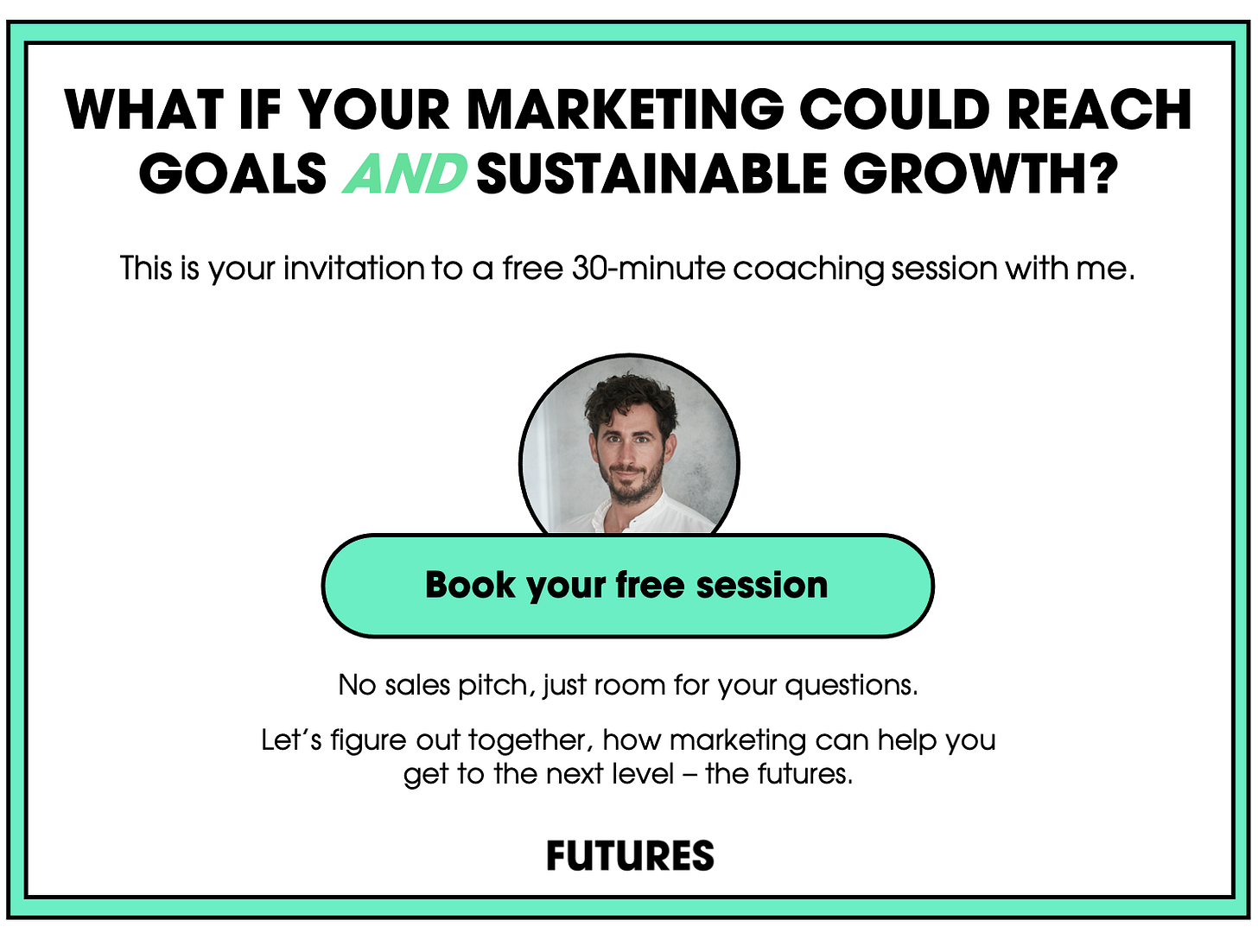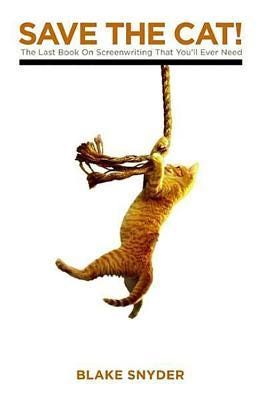🧩 4 simple steps for successful storytelling
Why do stories exist? What contribution do they have to strategic marketing today? And how do we tell them best?
Hello 👋 My name is Florian Schleicher and this is the FutureStrategies newsletter from FutureS. I'm glad you're reading along 💚

⚡️ Once upon a time... (the beginning)
Our story begins many thousands of years ago.
People live in caves.
They hunt, gather and wander through a world they will not fully understand for a long time.
And they have a problem:
How do they pass on information in such a way that it lasts for years and lifetimes? How do they preserve knowledge without having a medium for it?
So they sit around a campfire and package their information.
Into a story.
She is the heroine of today's post.
📜 Come, I'll tell you a story (the hero)
Science also calls this developmental step Homo Narrans, the human being who tells stories and understands his environment through them.
We are still experiencing the result of these first stories today: the ancient texts of religions like those of mythology have survived the millennia until today. That's how good the storytelling was.
As a child, I listened to Michael Köhlmeier's Sagas of Classical Antiquity - stories about gods and heroes on old-fashioned cassettes. For hours I was fascinated by the entanglements and twists.
And like hundreds of generations before, I learned something about life through the stories. What heroes are made of, why the supernatural (= gods) is feared, how people can lead a "good" life - and I could imagine how I myself would deal with strokes of fate.
Stories help people to grasp information more quickly and, even more importantly, to remember something important.
“We're wired for story. In a culture of scarcity and perfectionism, there's a surprisingly simple reason we want to own, integrate, and share our stories of struggle. We do this because we feel the most alive when we're connecting with others and being brave with our stories - it's in our biology.”
Brené Brown
Since then, several media revolutions have taken place: From painted pictures to writing, to books to mass media, and most recently the Internet.
And today, too, we face a problem:
There is so much content - too much to ever consume.
There is too much entertainment, too many games, and too many books - in short: too much information.
🚗💨 Gone in 8 Seconds (the villain)
And if that weren't enough, the human attention span is also declining.
Microsoft has found in studies that people give content eight seconds to convince them. That was in 2015.
With new platforms like TikTok re-programming our brains, attention spans are dropping even more. (If you want to know more about what the Internet is doing to our brains - I recommend Nicholas Carr's book "What the Internet is doing to our brains").
Marketing has the task of persuading people to buy products and services.
But that's hard to do in a world where everyone is so busy indulging in the never-ending stream of (useless?) content on the Internet.
But here, too, there is a glimmer of hope and a solution.
Namely, an old acquaintance: The really good story.
⭐️ The really good story (the solution)
It is not for nothing that "storytelling" has been on everyone's marketing lips for some years now. In times of (attention) need, we are once again reflecting on an essential basic element of our human history.
Nowadays, it is clear that this in turn creates a lot of content that many will never read, see or hear.
But back to our heroine.
What does a really good story need? What does good storytelling need?
A good story must be tellable.
💬 What is "tellability"?
A good story is created when two essential ingredients come together:
Is the story worth telling?
Far too often, companies and brands define a story they want to tell without putting on the glasses of the target group.
So we need to ask ourselves: do I/my company want to tell the story? And: Does my target group want to hear it?
Can the story be told?
Is there a way or a suitable medium to tell this specific story in such a way that the content can be grasped and understood?
“Tellability is not about whether the story is good or bad. It is about whether the storyteller can literally sit down and (almost unconsciously) work out how to tell it at all.”
Once we have clarified the tellability of a story, the next task in storytelling begins.
🍀 4 steps to the best story
There are many guides to building storytelling. From Joseph Campbell's much-praised Hero's Journey to Pixar's 22 Principles for Storytelling, my own PARTY principle (which I'll describe here another time) to Chip & Dan Heath's SUCCES structure - the latter is also a good book tip for beginners:
But I promised four simple steps.
At Marketing studio Without I found a simple guide in four steps, which I have slightly adapted here:
The beginning
How and where does the story begin? What is our starting situation? What problem are we facing?
The hero
Is our solution a person? An inspiration? A technology? A stroke of luck?
The villain
Do you have a nemesis? What is the status quo you are overturning?
The solution
What happens to resolve the story? What better world are we building? How does it happen?
Marketing needs stories
Successful strategic marketing today still needs stories to capture the limited attention of target audiences.
Of course, with the four steps around storytelling above, there are details and sub-parts that are important to tell a good story. For example, heroines always need a clear introduction. We need to understand immediately why they are "the good guys."
Blake Snyder brings up the example from the Disney movie Aladdin:
💪 Stories work
Whether we're writing a press release, drafting a blog post, managing a social media account, presenting a pitch, or planning an advertising campaign, storytelling helps us achieve our goals from attention to persuasion.
“Through narratives, we explain how we see things, how these things work, how we make decisions and justify them, how we understand our place in the world and how we try to persuade others to embrace our beliefs and values. Narratives shape our perceptions, which in turn form our realities and end up influencing our choices and actions. They are how we find meaning in life.”
Narratives are a tried and tested means of staying in people's minds for millennia.
A good and simple story not only holds our attention.
It also entertains us.
“What we do like is to be entertained, and that’s what stories do. If we can be entertained by your story, it becomes memorable, and the product that’s associated with it can become memorable for the same reason.”
Frank Rose, author
And that is exactly what we want to achieve in the marketing.
PS: You can also read this posting in German.
If you enjoyed this post, I recommend:








